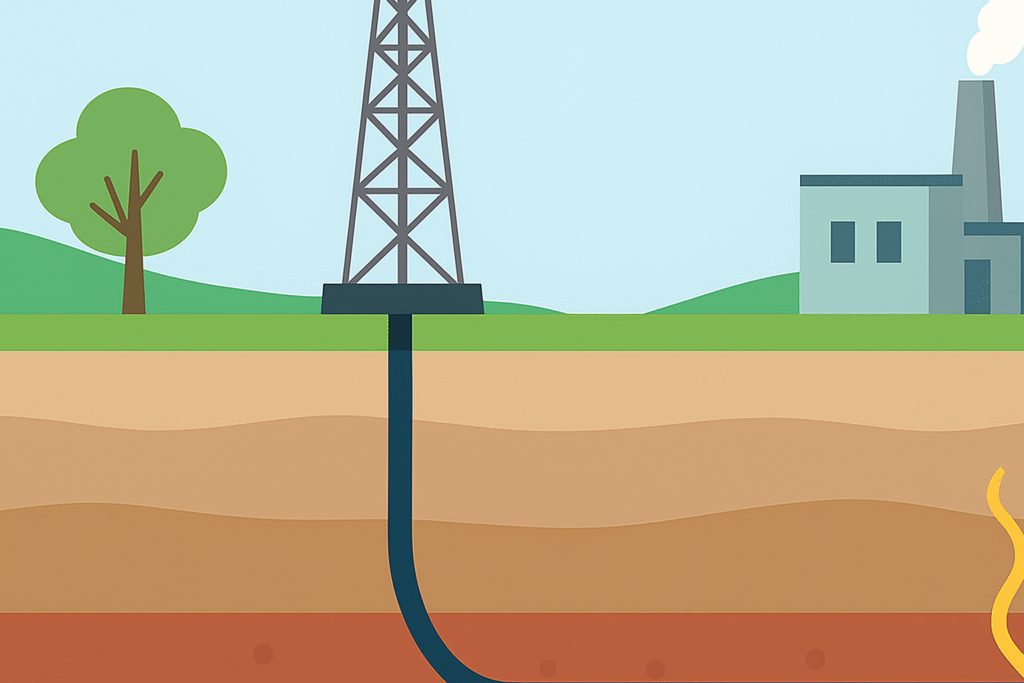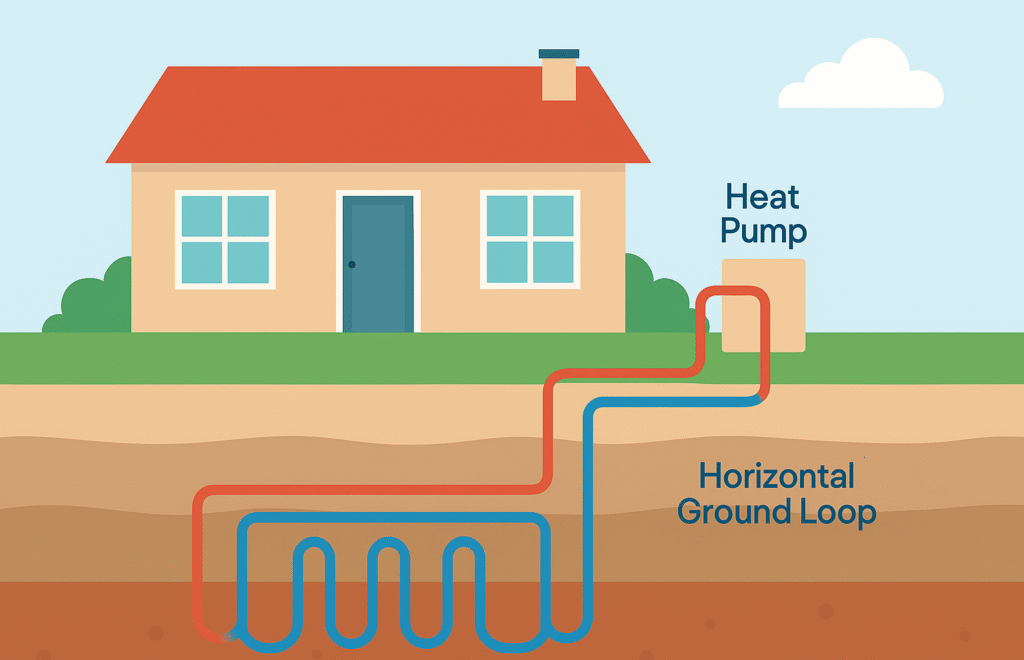Geothermal power involves harnessing heat from the Earth itself. This may occur at a slight depth or much deeper beneath the surface.
There are key differences between commercial-scale geothermal energy and ground source heat pumps. The latter are considered a form of geothermal power, too, but GSHPs are designed for domestic use.
In the following guide, we’ll compare commercial and domestic geothermal energy, the key differences between each option, and the overall future for both areas.
Explaining Geothermal Power Vs Ground Source Heat Pumps
The term geothermal power generally refers to a commercial-scale version of geothermal energy. These are large projects that dig deep below the Earth’s surface, reaching about half a kilometre or more beneath the ground.
Geothermal energy utilises hot water from subterranean reservoirs to spin a turbine so as to generate electricity. An injection well returns water to the reservoir.
Most geothermal energy systems drill vertically into the Earth, though directional drilling involves horizontal movement too, allowing for greater accessibility where direct vertical drilling may not be viable.
Commercial geothermal power serves the purpose of providing energy to many households. On the other hand, ground source heat pumps are each used for a given property.
Ground source heat pumps harness heat from just a meter or two below the surface, where a horizontal loop is used. This distance reaches up to around 200 metres beneath the ground in the case of a vertical loop.
While commercial geothermal energy systems often cost £100,000s to install, the average ground source heat pump is generally priced between £10,000 and £45,000 per unit.
What Else Should I Know About Ground Source Heat Pumps?
Ground source heat pumps or GSHPs have a coefficient of performance or CoP of between 3 and 5. This is a measure of how much usable energy is delivered for each unit of electricity consumed.
While more efficient than their air source heat pump counterparts, GSHPs are more expensive. This is with air source heat pumps costing around £7,000 to £15,000 each.
As for lifespan, ground source heat pumps last for between 20 and 25 years. The ground loops, on the other hand, generally go for about 50+ years before needing a replacement.
The Future of Geothermal Energy and Ground Source Heat Pumps
Geothermal energy is likely to play a significant role in the future of renewable energy. This is between the growing need for green energy and the development of directional drilling and enhanced geothermal systems.
Along with anticipating the future role of commercial geothermal energy, ground source heat pumps have backing, such as through the Boiler Upgrade Scheme, which can cut the price of a GSHP installation by £7,500.
We anticipate a bright future for both technologies, though ground source heat pumps may take a bit of time until they become more affordable and appealing.


